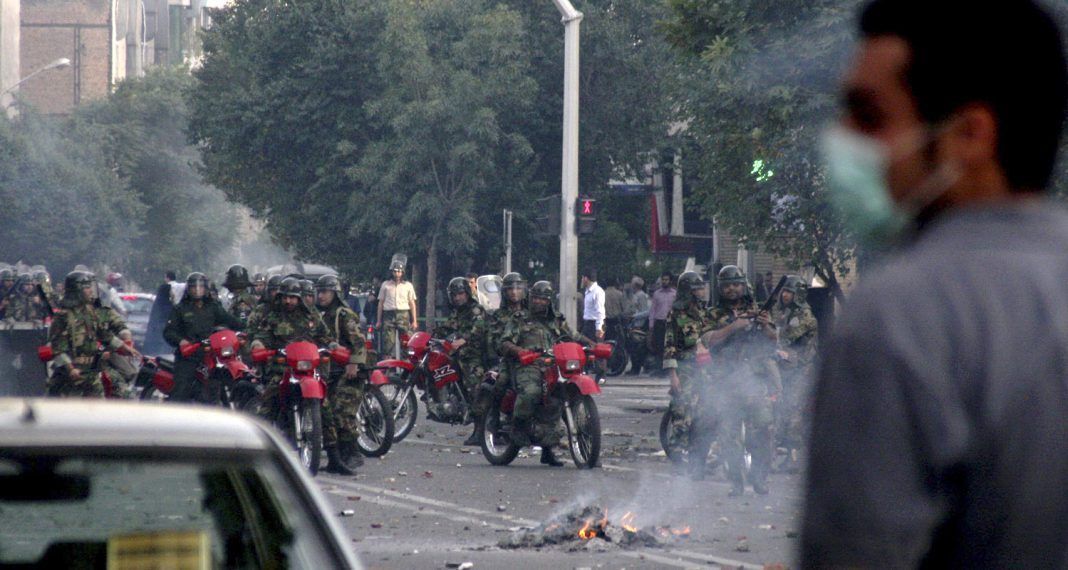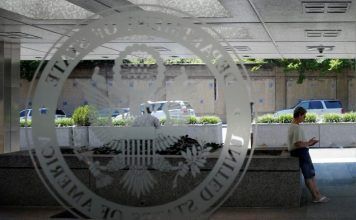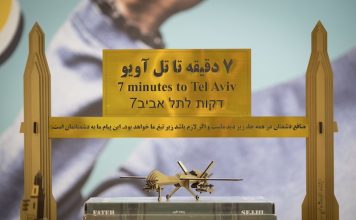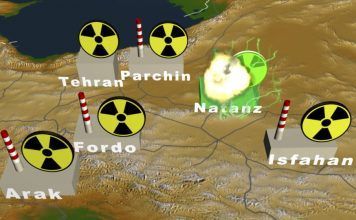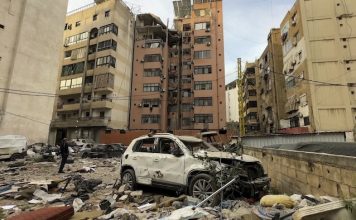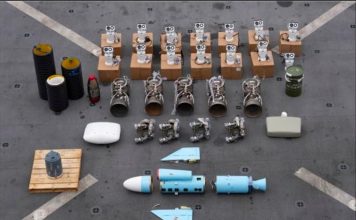An international People’s Tribunal established in the Hague to investigate the deaths of protestors in Iran during anti-government demonstrations last year, has been flooded with requests to testify from Iranians inside the country.
The 2019 protests, which began on November 15 in Iran after a sharp rise in fuel prices, spread across the country and lasted for five days. During that time the government ordered an almost complete internet blackout, followed by a violent crackdown on protestors. While the exact number of people killed is unknown, estimates provided by human rights organizations and media outlets suggest that between 304 and 1,500 men, women and children died.
The Aban Tribunal, named after the month in which the protests took place in the Persian Calendar and launched on the anniversary of the protests, was requested by the London-based NGO Justice for Iran; Iran Human Rights (IHR) in the Netherlands and Ensemble Contre La Peine De Mort (‘Together Against the Death Penalty’), whose headquarters are in Paris. The tribunal was established on behalf of family members of the victims and protestors in response to the Iranian government’s refusal to carry out a full investigation into the deaths.
Shadi Sadr, an awardwinning human rights lawyer who has represented several women activists sentenced to death in Iran, and who is the Executive Director of NGO Justice for Iran, said counsels for the Hague tribunal had been overwhelmed with requests to testify at the hearings.
“When we announced the tribunal last Saturday, we also published a call for witnesses and asked people to get in touch through a WhatsApp number if individuals were interested in testifying at the tribunal. This led to a boom in responses, and the assistants to the co-counsel received hundreds of calls and texts with evidence which included photos, videos and documents,” she said.
“As of Tuesday morning, more than 120 people inside Iran said they wanted to testify before the tribunal, some anonymously, but several also wanted to be identified by their real names,” she added.
The surge in interest means that the tribunal is having to consider whether to extend the hearings, which are scheduled to run from February 2021 to April 2021, or to store some of the statements online.
[aesop_image img=”https://kayhanlife.com/wp-content/uploads/2020/11/Aban_Tribunal2.png.885x520_q85_box-00884520_crop_detail_upscale.png” panorama=”off” credit=”-” align=”center” lightbox=”off” captionsrc=”custom” captionposition=”left” revealfx=”off” overlay_revealfx=”off”]
The Aban tribunal, which operates independently of the organizers in line with the international tribunal process, is led by Hamid Sabi, a lawyer in London who has worked on the Iran Tribunal and the China Tribunal and is currently serving on the UK’s Uyghur Tribunal; and Regina Paulose, a U.S. attorney who specializes in international criminal law and human rights. British barrister Sir Geoffrey Nice QC, who served as the prosecutor in the trial of the former Serbian President Slobodan Milosevic at the International Criminal Tribunal, and acted for victims’ groups in cases relating to Iran at the International Criminal Court, endorsed the tribunal in a press release issued this week.
The tribunal confirmed the names of six of its seven panel members in the release. They are legal experts in fields spanning war crimes and human rights. The tribunal will use international human rights and criminal law thresholds and processes to ‘test’ evidence and conduct its hearings.
During its hearings, the tribunal will take testimony from factual witnesses such as protestors, relatives of the victims, and hospital eyewitnesses including medical professionals attending to injured protestors. Sadr said the tribunal would also hear from expert witnesses, and would invite the U.N. Special Rapporteurs for Iran, Human Rights Watch and Amnesty International to take part.
Amnesty International’s latest campaign, ‘Web of Impunity,’ which also marks the anniversary of the protests, calls on the Iranian government to release the information it holds on the protestors killed during the demonstrations and to stop shutting down the internet during periods of unrest.
Oscar Jenz, the Iran and United Arab Emirates Country Coordinator for Amnesty International UK, said future protests in Iran could be hidden from the international community again if nothing was done to address the government’s actions.
“In our original investigation, we were able to verify that the Iranian security services killed at least 304 people between November 15 and 19 in 2019, although we believe the actual numbers to be much higher. We found that more than 220 of these deaths took place within 48 hours of the internet shutting down on November 16,” he said.
“It is hard to separate cause from effect here. But we do know that fact-finding was significantly impeded by the absence of information sharing during the days of the internet shutdown, and that this has bolstered the security services’ sense of impunity. If we are going to see protests on the same scale as we did last year, we will most probably see attendant internet shutdowns,” he said.
While concern over the regime’s online censorship grows, cyber watchdog NetBlocks reported a disruption to Iran’s internet on November 16, from 7.30pm to 10.30pm local time, as Iranians marked the anniversary of the protests this week. Amnesty’s campaign also urges the Iranian government to launch a full investigation into the protests.
Organizers of the Aban Tribunal hope the findings from the hearings will enable victims of the protests and their family members to place pressure on the Islamic Republic to investigate the deaths.
“The actions that the organizers will take after the judgment is handed down are even more important than the process itself. Some of these tribunals have been very successful in increasing political and societal pressure on the government in question to make domestic changes,” Sadr said. “The judgment is an authoritative document that gives us a powerful tool to go to international, regional and — although we are not yet sure how — domestic accountability mechanisms, to try to persuade them to investigate the violations properly.”
Jenz said he remained concerned that shutting down the internet in Iran had concealed grave human rights violations.
“With the internet shutdown during the November 2019 protests, we saw the worrying development where not only was the internet shut down to clamp down on the spread of peaceful protests, but it was also possibly used to hide serious human rights violations, such as unlawful killings,” he said.
Sadr said the tribunal would help to establish the missing facts related to the protests and offer much-needed clarity about the government’s actions during the demonstrations.
“The People’s Tribunal is about justice, but in some sense it is more about the truth confirmed by a group of independent lawyers which cannot be denied by the Iranian government or discredited for not being impartial. The right to truth and the right to justice are the two wings of accountability and I hope this tribunal will bring about both for the victims,” she said.
The tribunal hopes to hand down its judgment next April.

